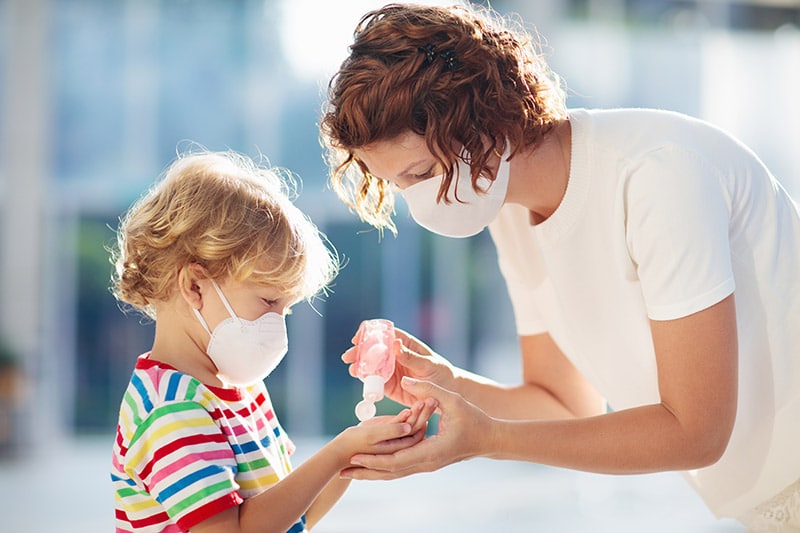When danger lurks, a mother hen spreads her wings and pulls her chicks close to protect them. I want to be able to do this, right now, during the COVID-19 pandemic.
It’s not just my daughters I want to protect, but the rest of my family and friends, too. I want to be able to shield them from an invisible enemy that has reshaped life as we know it.
My daughters are 22 years old and my dad is 90, so none of them think they need my help. But that doesn’t stop me from wanting to protect them in whatever way I can. I am supposed to be the one in charge.
This struggle is futile, of course, and while I can admit that, it doesn’t stop how I feel. I also recognize the stress I’m feeling is putting my own health at risk.
Many different reactions
Everyone responds differently to stress, says Kathy Ross, MHA, RN, Director of Corporate Wellness for Methodist Health System. For some, it changes eating and sleeping patterns, and it aggravates chronic health problems for others.
Moms and other caregivers get an extra dose, she says.
“Mothers not only worry for their own health, but they also worry about the health of their children,” Ross says. “When a mother cannot be in control, it can produce great anxiety. This is a normal response!”
Stress can be beneficial
Not only is stress a natural reaction to change, but it can also prove beneficial, says Cheryl Vera-Burkhalter, MD, a family practitioner on the medical staff at Methodist Dallas Medical Center.
“We are hardwired to have a response when our environment changes or there is uncertainty ahead,” she says. “These are protective responses. Anxiety protects us by making us more careful and aware of how to stay safe.”
It is good to know I am not alone, and my stress is serving a purpose. But I also know I am impacting the lives of those around me and feel I need to provide a calming influence, even if I don’t feel it.
“We should not feel bad about having anxiety or sensing stress,” Dr. Vera-Burkhalter says. “But be aware that your children are also feeling this.”
Find time for yourself
So, how is a mom supposed to find that fine line of balance, where you take care of yourself, while also taking care of others?
Surprisingly, Ross suggests focusing on yourself in order to set a good example.
“A mother taking the time for her own self-care can help her remain calm and reassuring, a good model for her children to observe,” she says.
Ross and Dr. Vera-Burkhalter offered some recommendations:
- Examine your heart rate and breathing: If your heart is beating fast and your breathing is quick and shallow, try to deepen each breath in, then release it slowly. You can focus on taking deep breaths by counting to 10 with each inhale and exhale. This sends signals to your brain to lower your heart rate and helps your body relax.
- Take frequent breaks, even if they’re short: Stepping outside for a breath of fresh air, having a cup of tea, or turning on relaxing music can help. Scrolling through social media does not count as a break.
- Stick to a routine as much as you can: Have your children get up at the usual time, get dressed, and have breakfast before starting their day of homeschooling. This will decrease your stress and theirs since it is familiar. The more life seems “normal,” the better for everyone.
- Cut down on the decision-making: Relieve some of the stress for both you and your children by setting up some systems for home and work that decrease the number of decisions you must make daily. For example, decide ahead of time that you will have sandwiches for lunch every day.
- Validate your children’s feelings: This goes for children of any age, but college-aged children who have returned home may have an especially hard time adjusting. While away at school, they are self-sufficient and, suddenly, they are back in the family unit and grieving a lost semester, or even a traditional senior/graduation year. These things cannot be replaced, and they worked hard to achieve them. Give their feelings a name — “you must miss your friends” or “you must be frustrated to not get to finish the year at school” — to lessen the impact on your children.
- Recognize the physical toll of stress: If you understand that anxiety is driving physical responses, then you can do things to combat it productively: eating properly, getting exercise, and getting enough sleep.
- Explore the joy of journaling: Encourage your children to start a mindfulness journal. If they are too young to write about their feelings, urge them to draw their feelings.
- Take a moment of gratitude: Make a habit of talking with each other about things that bring you joy. Model this for your children and it will help all of you to get through this time of change.
I realize I cannot possibly stretch my wings far enough to cover everyone, but at least I am a little better prepared. It’s a great start to recognize that all these life-altering changes are challenging under the best circumstances, and that coping with them as a family is far better than trying to handle it on your own.
Learn more about COVID-19 and its impact on mental health.
About the author
 Jerri Locke is the director of Healthy Aging for Methodist Health System. She directs a membership program, Methodist Generations, for adults who are at least 55 years of age. She is driven to provide quality programs to help older adults maintain a healthy life. Jerri has a Bachelor’s in Education from Abilene Christian University, as well as a Masters in Rehabilitation Counseling from the University of North Texas and a Masters in Human Relations and Business from Amberton University. She was born and raised in Oak Cliff and values the diversity, history, and the community it provides. She’s a mom of two young adults, a foster mom to a variety of rescue dogs, and a part-time caregiver for her father.
Jerri Locke is the director of Healthy Aging for Methodist Health System. She directs a membership program, Methodist Generations, for adults who are at least 55 years of age. She is driven to provide quality programs to help older adults maintain a healthy life. Jerri has a Bachelor’s in Education from Abilene Christian University, as well as a Masters in Rehabilitation Counseling from the University of North Texas and a Masters in Human Relations and Business from Amberton University. She was born and raised in Oak Cliff and values the diversity, history, and the community it provides. She’s a mom of two young adults, a foster mom to a variety of rescue dogs, and a part-time caregiver for her father.

